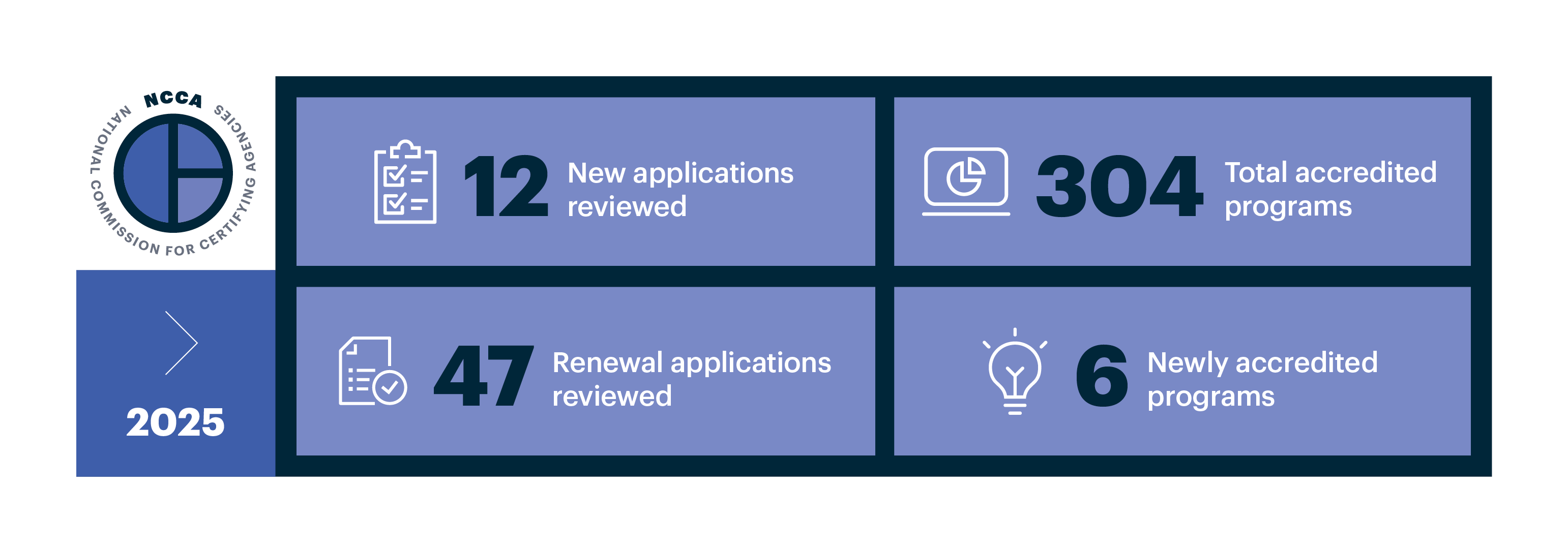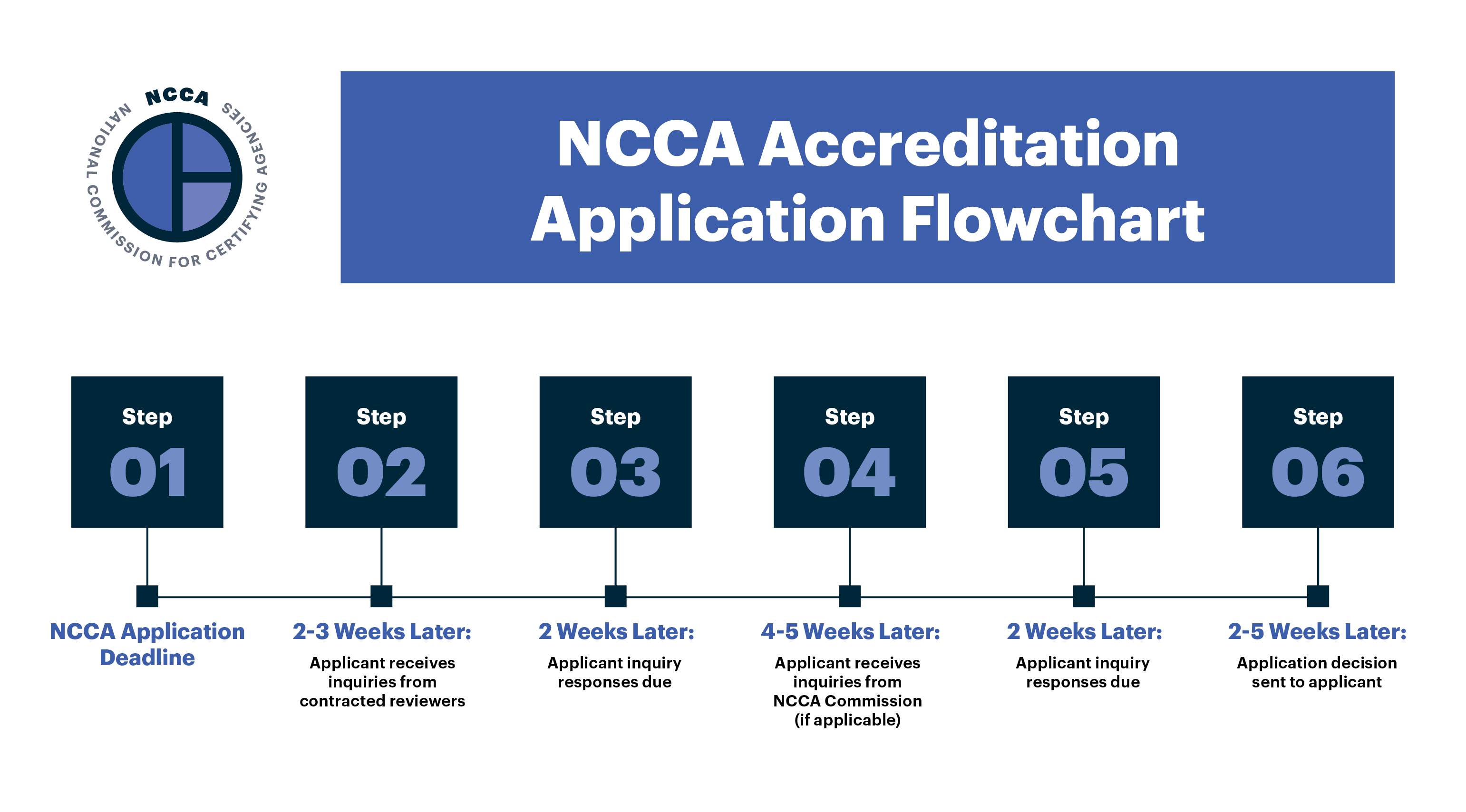
The National Commission for Certifying Agencies (NCCA) sets the national benchmark for high-quality voluntary certification programs across diverse industries. Designed to promote public health, safety, and welfare, the 2021 NCCA Standards define what a rigorous, credible certification program looks like today.
Programs accredited by the NCCA span a wide range of professions, including healthcare, counseling, skilled trades, emergency response, and automotive repair.

Explore all NCCA-accredited certification programs in the NCCA Accreditation Certification Programs Directory.
NCCA Mission
The NCCA helps to ensure the health, welfare, and safety of the public through the accreditation of individual certification programs that assess professional competency. As an independent resource recognized as the authority on accreditation standards for professional certification programs, NCCA is committed to:
- Establishing accreditation standards
- Evaluating compliance with these standards
- Recognizing programs that demonstrate compliance
- Monitoring and enforcing continued compliance
- Serving as a resource on quality certification
The NCCA Accreditation Process
Prepare for Accreditation
Ready to pursue NCCA accreditation? I.C.E. supports your journey with practical tools and learning opportunities through the I.C.E. Academy, including workshops, preparation checklists, and a community who is well versed in the NCCA standards.
Self-Assessment Checklist
Apply for Accreditation
The NCCA application process is thorough to ensure compliance with all outlined standards. The process can take up to 4-5 months to go through the full review cycle. Applications are open three times a year.

Maintain Accreditation
NCCA accreditation follows a five (5) year renewal cycle. Ongoing compliance with the NCCA Standards ensures your program stays aligned with recognized best practices in certification.
You May Also Be Interested In
As you continue your accreditation journey, we encourage you to:
- Learn more about accreditation.
- Understand your path to accreditation.
- Apply for NCCA Accreditation.
- Learn more about the Standards and Recent Revisions.
- Find frequently asked questions about the NCCA Accreditation process.